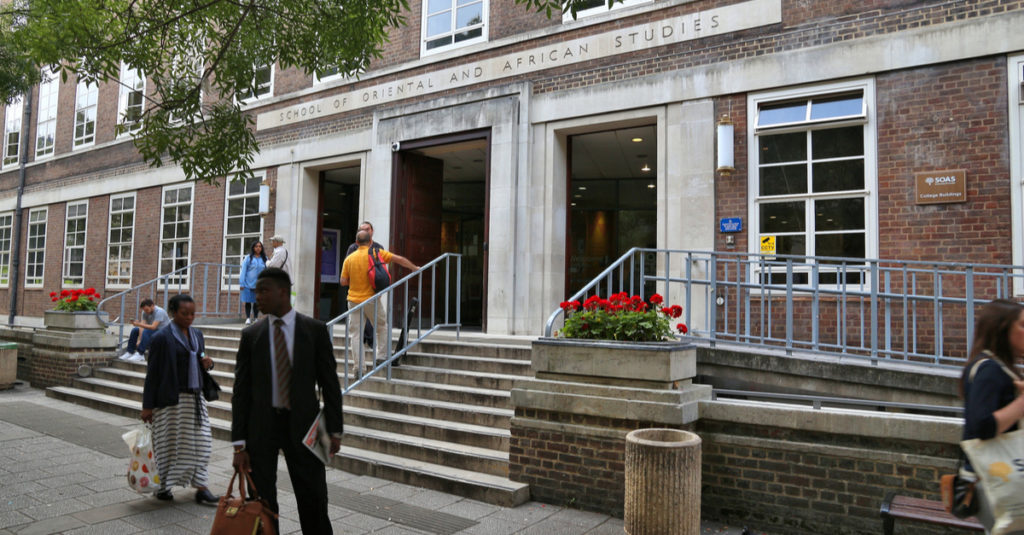Two new reports have warned that the crackdown on pro-Palestine activism in British schools is undermining freedom of speech and stigmatising legitimate political activism.
A new case analysis by CAGE shows how schools have taken a harsh approach to displays of solidarity with Palestine by students and teachers alike.
And a similar study by the School of African and Oriental Studies (SOAS) says the government is confusing legitimate political activism with the supposed threat of extremism.
The reports come a few months after Education Secretary Gavin Williamson warned headteachers to ensure “political impartiality” over the Israel-Palestinian conflict, following a “concerning” increase in antisemitic incidents.
Williamson said the recent violence in the region had increased focus on the conflict in many schools, which in some cases had led to the expression of antisemitic views and bullying of Jewish students and teachers. He said schools should treat these incidents with “due seriousness.”
In the 47 cases CAGE has handled, nearly all featured interventions and reprimands for students displaying their humanitarian support for Palestinians.
Subscribe to our newsletter and stay updated on the latest news and updates from around the Muslim world!
CAGE said while only a single case led to a formal Prevent referral, the climate engineered by the policy – which is to police and manage discussions on politically sensitive matters – can be seen in full swing.
This is further exacerbated by government diktats to school leaders and Ofsted’s increasingly overbearing monitoring regime of any politically inconvenient speech, the report added.
Cases featured in the report include:
- The school that banned students from wearing or displaying any colours of the Palestinian flag, as well as abayas or any clothing resembling “Middle Eastern clothes.”
- The student with behavioural issues who was referred to Prevent and social services after emailing videos of Islamic lectures and spiritual healing to his school to express his unhappiness at a school’s one-sided presentation on Israel-Palestine.
- The students who were suspended because it was deemed that wearing a Palestine badge to school was “inappropriately political” and may “offend” students.
- The student banned from using their online classroom platform due to them discussing Palestine with friends on it, and threatened with exclusion.
The analysis recommends that schools reject the “securitisation of Palestinian activism” and create an environment that nurtures debate. As for the government, CAGE has demanded it ceases its “partisan interventions and its authoritarian management of the education sector.”
Azfar Shafi, CAGE researcher, said: “The punitive reaction from schools towards children expressing support and solidarity for Palestinians reflects a political context that has sought to toxify Palestine, and an institutional environment that seeks to silence discussions around social and political issues in schools.”
SOAS briefing
Meanwhile, the SOAS briefing by academics and experts in the field of counter-extremism said schools should remember their role in fostering an environment conducive to civic education, rather than discipline students for practising basic empathy.
The briefing, written by Dr Richard McNeil-Willson, said that if schools are to create democratic citizens such activism should be regarded as a legitimate expression of political engagement and not “extremism.”
Current approaches which involve the implementation or threat of Prevent are weakening democratic rights and freedom of speech, the briefing said.
Groups such as Palestine in Schools and the Islamophobia Response Unit have recorded hundreds of instances of pro-Palestinian activism being mistaken for extremism or antisemitism.

Muslim Engagement and Development (MEND) alone reported over 146 instances, with 40% leading to a verbal or physical reprimand, 17% to detention, 2% to suspension, 12% to exclusion 2% to the police being called, and 1% to a Prevent referral.
The most common forms of activism punished were the wearing of Palestinian emblems such as the flag or the keffiyeh (30%), and the expression of vocal support for Palestine (23%). Students have been told that displaying the Palestinian flag equates to support of terrorism – one educator comparing it to a swastika whilst others used discriminatory language against Muslim students.
Individual cases include a 15-year-old being sent to isolation for wearing a Palestinian scarf, a student being cautioned for wearing a “Free Palestine” badge, a 14 year-old being physically abused by staff, and a five year-old removed from class for questioning.
These and other examples of students or activists being framed as “extremists” are taking place in the context of UK counter-terror legislation that disproportionately targets Muslim activism, according to the briefing.
To challenge this threat to our democracy, the briefing concluded, there must be a truly independent review of Prevent that works with community groups, academics and minority communities who are concerned by the expanding scope of counter-extremism.





















